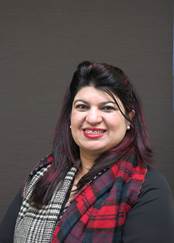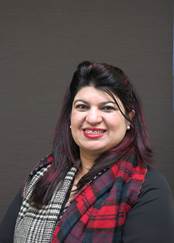
St Giles
International Women’s Day and Vancouver’s 2016 Teacher of the Year
This week – March 8 to be precise – sees us celebrate International Women’s Day. It’s a day when we celebrate the achievements of women across the world, and think about how we can work together to achieve equality for all women everywhere. It’s appropriate then that Vancouver’s 2016 Teacher of the Year, who we wanted to talk about today, is a woman!

Zainab was voted Teacher of the Year at the end of last year. She’s been teaching English for 18 years now, and has worked in four different countries. In her opinion, her success is down to the fact that she tries “to make a difference by embracing each student’s unique background, culture and language to empower students to learn and express themselves.”
As a teacher, she thinks it’s her job “to reach out to each student, facilitate their unique learning style and spark their interest”. But what about the students themselves? We wanted to know what Zainab thought the secret of successful language learning was. Her answer? Motivation!
She’s not alone in this. Lots of studies have looked at the factors which affect how different people learn languages, and many agree on the importance of motivation. In one study, the authors state “Motivation represents one of the most appealing, yet complex variables used to explain individual differences in language learning” (MacIntyre et al. 2001, p. 462).
What does she have to say about it?
“I believe that a language class that is “fun” & relevant can be motivating but unfortunately these two factors don’t always apply! Therefore, as a teacher, you need to look for other factors that can help motivate language learners. This can be as simple as creating a friendly, supportive, learning environment where the students come first.
A successful teacher should work on providing opportunities for the students to use the language they are learning. If they can bridge the students’ prior knowledge and their new learning experience, it promotes learner autonomy which in turn stimulates motivation.
Learning a second language should be viewed as a tool that enables students to achieve much more than their academic goals. It is never a destination, but rather an ongoing process where the teacher and the students exchange knowledge on an interesting journey.”




